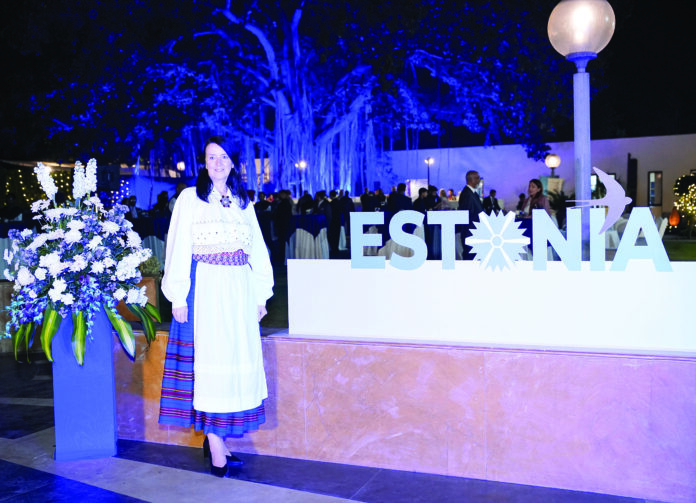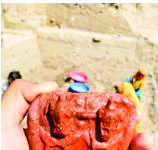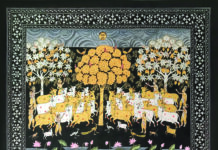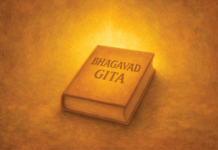Estonian Ambassador Marje Luup highlights growing Estonia-India ties through cultural exchanges, technological collaboration, academics, and fostering stronger bilateral ties.
In an increasingly connected world, where diplomacy is no longer confined to political parleys and trade agreements, cultural affinity and technological collaboration are becoming cornerstones of international engagement. In an engaging, wide-ranging conversation that spanned cinema, cyber security, traditional choirs, and a shared love for poetry, Ambassador Marje Luup, the Estonian envoy to India, painted a vivid portrait of Estonia’s vision for deepening its ties with India.
“Of course, if you look at the countries, India is huge, and in comparison, Estonia is tiny,” she begins with characteristic modesty, “but we like to say that culturally or technologically, Estonia is actually gigantic.”
It is a sentiment that recurred throughout the interaction — a relatively small Baltic nation making a significant global impact through its rich cultural heritage and technological innovation. Estonia, nestled between Latvia, Russia, the Baltic Sea and the Gulf of Finland, has long nurtured a deep appreciation for the arts, education, and innovation. “We are very proud of our choir history,” Luup says. “Not all of us, but many of us sing in choirs. Even during the pandemic, they found a way to practice virtually.”
Estonia’s resilience through innovation also manifested during the COVID-19 lockdown, when traditional choir practices went online. “You were seeing 40 people on screen singing together — somehow it was still possible to keep that spirit alive,” she recounts warmly.
Indeed, this spirit of innovation is nothing new to Estonia. “Skype was an Estonian invention,” the Ambassador reminds, with a tinge of nostalgia. “Unfortunately, it doesn›t exist anymore — just recently Microsoft decided to move forward with Teams. But at one point, it was a lifeline.”
This pioneering legacy continues today. Estonia is now home to eu-LISA — the European Union’s IT agency — and the NATO Cooperative Cyber Defence Centre of Excellence. Its digital governance systems are among the most advanced globally, and India has emerged as a key partner in this space.
“We have had great cooperation in cyber security,” says Ambassador Luup. “Rashtriya Raksha University is doing some very impressive work. Our company Cybexer has been collaborating with them on national cyber exercises.”
Of course, cultural diplomacy remains at the heart of Estonia›s outreach to India. Luup sees tremendous untapped potential for both countries to learn from each other. “Indians are very proud of their traditional clothing — the same applies to Estonians,” she says. “We may not wear it daily, but our regional costumes are full of intricate craftsmanship. Each tells a story.”
She highlights how Indian cinema — particularly the likes of ‘Disco Dancer’ and ‘Awaara’ — struck a chord with Estonians decades ago. “Many still remember ‘Jimmy Jimmy’,” she chuckles. “It’s part of our collective memory.”
But cultural exchange is not one-way. Estonian cinema, music, and literature have also started making inroads in India. The Tallinn Black Nights Film Festival — one of the 15 A-list film festivals accredited by the International Federation of Film Producers Associations (FIAPF)—has regularly screened Indian films. Meanwhile, Indian cinema, including Bollywood blockbusters, is slowly gaining popularity in Estonian theaters.
“We would love to see more Indian filmmakers come to Estonia. You know, Christopher Nolan’s ‘Tenet’ was partially shot there — we are very open to co-productions,” Luup explains. “We have a beautiful natural landscape, very skilled crews, and talented actors. Of course, our highest mountain is only 318 meters, so don’t come looking for Himalayan backdrops,” she guffaws.
The conversation takes a personal turn while discussing the iconic Estonian actor Jüri Järvet, known for his masterful performance in Grigori Kozintsev’s ‘King Lear,’ Andrei Tarkovsky’s ‘Solaris,’ Veljo Käsper’s ‘Postmark from Vienna’ and numerous other movies.
“Many younger Estonians might not know him, but he was a towering figure in our cinema. In fact, some of his films have already been remastered. This is something we are keen to pursue further — maybe even through collaboration with a major film festival here in India.”
Estonia has also made recent strides in bringing its cinematic treasures to India. Films have been screened at the European Union Film Festival, the Guwahati International Film Festival, and other children’s festivals. “We want to do more,” Luup says emphatically. “Sometimes the distance is a challenge, but with enough will, we can bridge the gap.”
Ambassador Luup’s vision extends well beyond cinema. Estonia, known for its deep choral traditions and classical music, has much to offer. “We are working to bring more Estonian musicians to India — to places like the Ziro Festival, Jodhpur Folk Festival, and even Mumbai and Delhi,” she says. “Bands like Bombillaz, Puuluup and Lonitseera have already performed here.”
Poetry is another area of strong connection. Esteemed Estonian poets Doris Kareva and Mathura (aka Margus Lattik) have visited India multiple times, with the latter’s work recently translated into Assamese. “And we now have a collection of Baltic poetry translated into Kannada,” she rejoices.
One major aspiration is to organize a concert dedicated to the works of Arvo Pärt, Estonia’s most celebrated classical composer. “We are celebrating his 90th birthday this year, and it would be wonderful to bring his music to India,” she says.
The ambassador’s enthusiasm extends to educational exchanges as well. Although the number of Indian students in Estonia is still modest — around 200 — many are pursuing Master’s and doctoral studies in ICT-related fields.
“We don’t have many scholarships right now, but we do have strong English-language programs. Some students have even picked up Estonian,” she shares. “We have also discussed creating online Baltic Studies programs in Indian universities.”
There’s also scope for researcher exchanges. “Two Estonian scholars recently collaborated with ORF [Observer Research Foundation] in Delhi,” she notes. Also, a couple of them in the past have done so. “These are small but meaningful steps.”
Perhaps the most powerful metaphor for Estonia’s cultural heartbeat is its iconic Song Festival, held every five years in Tallinn in the month of July. “We are talking about 40,000 people in a choir, and another 60,000 in the audience — all singing,” Luup says, visibly moved. “It’s a deeply emotional moment for every Estonian.”
She displays photographs of past festivals — the sheer scale, unity, and joy are undeniable. “This is not just about music,” she says. “It’s about who we are.”
As the conversation draws to a close, it becomes evident that Estonia and India — despite their differences in size, geography, and demography — share more than a few meaningful affinities. In culture, technology, education, and shared human spirit, there is much to celebrate and build upon.
In a world fractured by polarities, it’s these bridges — of music, memory, cinema, and cooperation — that show us the way to the future. And leaders like Ambassador Marje Luup are not just diplomats. They are dreamers, doers, and custodians of these bridges.








